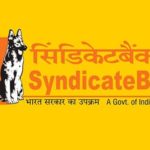Talking about the Fixed Deposit Account and the Recurring Deposit account, there is a whole world of differences between the two. But the best part about both is these are two of the best ways to move your stagnant savings and grow them for your benefit. They provide safety on the money that you are investing or saving for your future use. But most of the time, the investors get confused as to which out of these two suit their needs and which one they should be opting for. Undoubtedly the key features of both these instruments are similar but to help you choose better for your investment, mentioned below are the key differences between both.
Bank FD and RD Account Aim
- Fixed Deposit – This is a tool used to move the stagnant savings and with the higher rate of interest the investors can also save a great deal as compared to a normal savings account.
- Recurring Deposit – The main purpose of having a recurring account is to incorporate the habit of saving among the people
Bank FD and RD Account Duration
- Fixed Deposits can be opened up to a maximum of 10 years from at least 7 days.
- In case of recurring deposit accounts, a maximum of 10 years and a minimum of 6 months is the locking period
Bank FD and RD Account Eligibility Criteria
- Fixed deposit – All the Indian residents are eligible to open an FD Account
- For a recurring deposit account, though all the Indian residents are eligible even the parents can open the account on behalf of their minor children
Bank FD and RD Account Premature Withdrawal
- In the case of FD, premature withdrawals are subject to penalties
- In case of RD, premature withdrawals are not allowed but there are some banks which offer loans against the RD.
Bank FD and RD Account Investment Model
- For an FD, the investment is made one time in a lump sum and then it is fixed.
- In case of an RD, monthly installments are paid in order to invest.
Bank FD and RD Account Return on Investment
- In case of a fixed deposit, the return on investment is comparatively higher.
- In the case of RD, the return of investment is on the lower side.
Bank FD and RD Account Basic Advantages
- Fixed deposits allow people to earn a higher return on the funds
- The main advantage of recurring deposit is that it helps in creating the habit of saving among people.
Bank FD and RD Account Partial Withdrawal
- Partial withdrawal can be made on fixed deposits after paying 2% of the principle amount.
- It is not allowed in case of Recurring deposits.
Bank FD and RD Account Calculation of Interest
- For a recurring deposit, Compounding of interest usually occurs every quarter.
- In Fixed deposit, the compound interest is computed based on the interest that gets accrued every year.
Bank FD and RD Account Tax Benefits
- The depositors do not get any Tax benefit under the Recurring deposit scheme
- In case of a fixed deposit, there is a tax exemption applicable under the Section 80C of Income Tax Act 1961 however as per the current law this is applicable only for deposits over 5 years.
Which Instrument of the Two Helps you Earn More?
To understand which saving instrument of the two is best, there is a smaller example which would help you understand.
In case of a fixed deposit
The amount invested is INR 24000. With the interest rate at 9% which gets compounded quarterly, you will get an interest of INR 2234 in a year making your principal amount to be INR 26234.
In case of Recurring deposit
You are depositing INR 2000 per month. With the interest rate at 9% which gets compounded quarterly, you will get an interest of INR 1195 in a year making your principal amount to be INR 25195.
With this example, it is clear that with a fixed deposit, the investors would be able to save more.
With the differences mentioned between the fixed and recurring deposit, it can be easily concluded that for a fixed deposit you need a have a huge lump sum of money which you can simply invest for a fixed period. This amount can then be used for marriages, education or even tax benefits. But in case of a recurring deposit, since the deposit would be of a fixed amount and at fixed intervals, it won’t help you meeting expenditures like education and marriage but the short term goals can be achieved such as vacations etc. But in the end, it is the choice of the investor to decide as to which tool he needs to use for saving.



